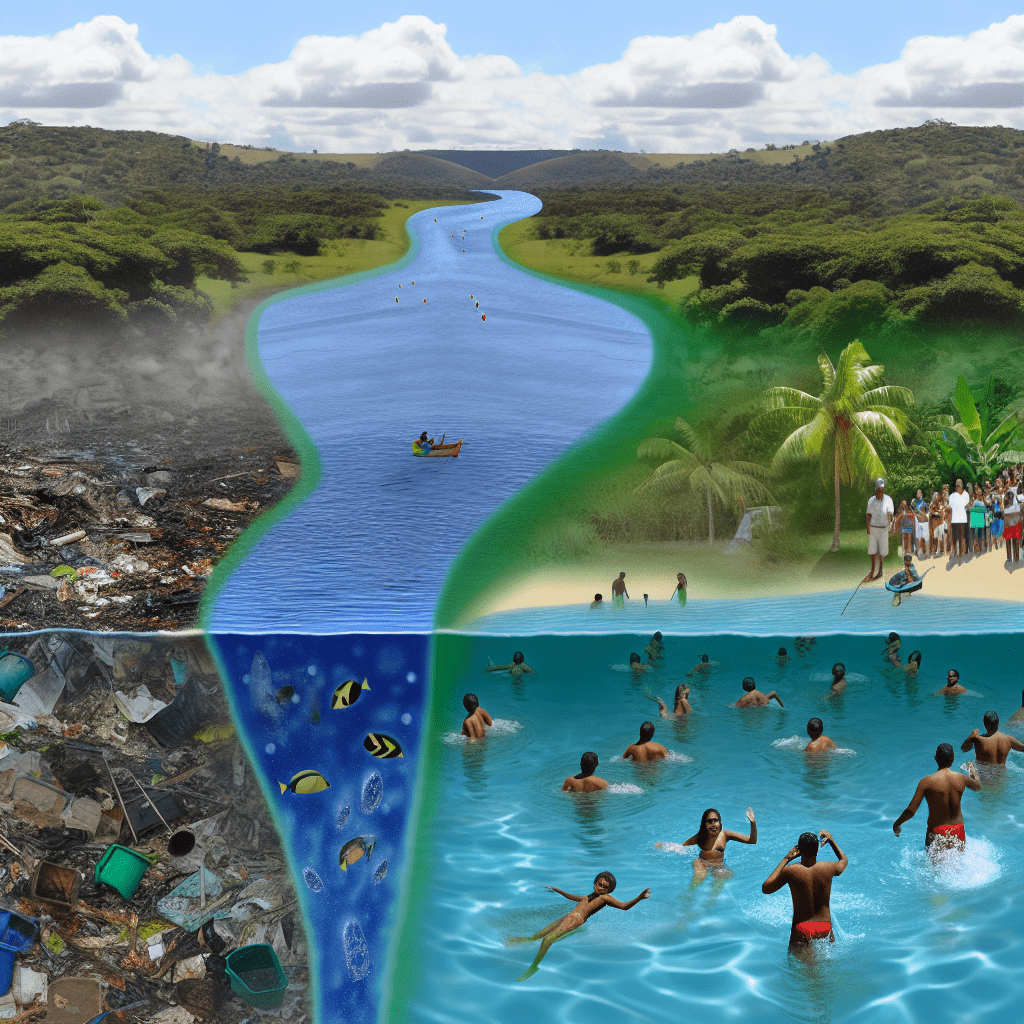”
Gifted with an abundance of freshwater resources, Brazil still grapples with grave water quality issues. This article probes these challenges, their root causes, and outlines potential strategies to achieve healthier, safer water across the nation.
Key problems in Brazil’s water quality primarily stem from industrial contaminants, agricultural runoff, inefficient wastewater treatment, and escalating impacts of climate change.
Central pollutants in Brazil’s waters include hazardous heavy metals, toxic industrial waste, untreated sewage, and surplus nutrients that lead to harmful algal blooms. Such pollutants pose severe health risks, disrupt delicate aquatic ecosystems, and overstrain the water treatment facilities.
While the National Water Agency (ANA) enforces water management policies, recurrent water quality issues underline an urgent need for more holistic, sustainable strategies.
Tackling Brazil’s water quality requires stronger oversight of polluters, sizeable investment in advanced wastewater treatment facilities, widespread adoption of sustainable farming practices, and climatically attuned water management strategies.
Furthermore, the role of public awareness and societal participation cannot be overstated. Nationwide campaigns highlighting water conservation, mitigation of pollution, and the essential nature of clean water can engender transformative societal shifts.
In conclusion, while the journey to improved water quality in Brazil may appear daunting, it is fully achievable. By reinforcing policy implementation, harnessing technological innovation, and inspiring active public participation, Brazil can transition from polluted rivers towards an era of crystal clear waters.
By FountainGO!

